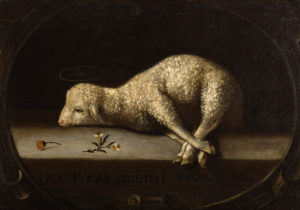Between 2006 and 2022, “Christian nationalism” was primarily used by critics to describe Americans who conflate God and country and who are racist, sexist, and, generally, deplorable. So, of course, combative Christians including Marjorie Taylor Greene, Douglas Wilson, and Andrew Torba decided to embrace the label in 2022. They have now been joined by a provocative scholar who purports to make the case for Christian nationalism.
Readers hoping for a practical manifesto will be disappointed by Stephen Wolfe’s intellectually serious book. Wolfe is a committed Calvinist who earned a Ph.D. in political science. His book’s first nine chapters contain a detailed discussion of Reformed political philosophy, mostly based on 16th and 17th century authors (17). Wolfe proceeds on the assumption that the Reformed theological tradition is true, and so makes “little effort” to make biblical or more broadly theological arguments to support it (16). Instead, he engages in depth with the works of giants of the Reformed tradition including John Calvin, Francis Turretin, Johannes Althusius, Franciscus Junius, and English/American Puritans.
Literally minutes before I started writing this review, I checked my Twitter feed and found Providence’s own Mark Tooley observing that a “Methodist friend said he read 20 pages [of Wolfe’s book] & stopped when realizing [the] book is aimed only at Reformed [Christians].” This makes a great deal of sense. Unless one assumes the truth of Reformed theology, there is little reason to read this work. Wolfe’s understanding of Reformed theology permits him to reason from nature to some conclusions, but it is fair to say that his project will be of interest to only Calvinists.
I am sympathetic to Reformed theology, so I read past page 20. It seems to me that Wolfe offers a reasonable account of basic Reformed doctrines such as Creation, Fall, and Redemption. But not all Calvinists agree; several have already taken him to task for misunderstanding the tradition with respect to these important doctrines. Rather than wade into this debate, I’ll focus on some of Wolfe’s more practical conclusions that may be of interest to readers concerned about American Christian nationalism.
The title of Wolfe’s book and the image on the front cover strongly suggests that his project involves bringing Christian nationalism to the United States of America, but the interior of his 478-page tome tells a very different story. Indeed, America hardly comes up in the first nine chapters, and much of what he writes could be applied to any Christian (by which he means Protestant) nation.
Wolfe defines “nation” as a small people-group whose members have a great deal in common including language, shared values, and a sense of place (135-145). Moreover, he explains that
I use the terms ethnicity and nation almost synonymously, though I use the former to emphasize the particular features that distinguish one people-group from another. Since every people-group has internal differences (e.g., class-based differences), nation is used to emphasize the unity of the whole, though no nation (properly speaking) is composed of two or more ethnicities (135) [all italics in quotations are in the original].
Wolfe’s idiosyncratic use of “ethnicity,” along with references to “blood relations,” “the volk,” “community in blood,” “the principle of similarity,” and the like have, predictably, raised eyebrows (138, 139, 140, 141). But the careful reader will recall that in a footnote on page 119, he assures us that his is “not a ‘white nationalist’ argument” (119). Wolfe clearly enjoys being provocative, but in light of sixteen years of polemical works describing American Christian nationalism as a racist movement, he should have been more prudent when discussing such matters. There should be no ambiguity when it comes to racism.
Wolfe is not ambiguous when it comes to gender. He contends that “the most basic unit [of a nation] is not individuals but teams of husband and wife” (57). Within these teams, the “man governs the household, orienting it to the divine mission he received from God, which he is responsible to see fulfilled” (58). As such, “the public signaling of political interests (whether through voting or other mechanisms) would be conducted by men, for they represent their households and everyone in it” (73).
Such a political order is vastly different than America’s current political arrangements, a reality recognized by Wolfe. Indeed, he observes that:
We live under a gynocracy—a rule of women. This may not be apparent on the surface, since men still run many things. But the governing virtues of America are feminine vices, associated with certain feminine virtues, such as empathy, fairness, and equality. . . . The rise of Christian nationalism necessitates the fall of gynocracy (448, 454).
Not only is the United States governed by women, the country has been captured by global elites and is better understood as the “‘globalist American Empire’ [which is] centered in Washington, DC,” and “wields US diplomatic, military, and economic power to advance modern liberal ideology across the globe” (440).
Wolfe offers no hope that American Christian nationalists can take over the United States of America, but localities are another matter. He observes that “there is at least one Christian nation in America” (399). This Christian “nation,” existing within the boundaries of the United States, could “will” itself into existence (e.g., 176, 181). One practical step in this direction would be for state governors to “resist and nullify unjust and tyrannical laws imposed on the people by the federal government” (473). One need not be Jefferson Davis to discern how such an approach might go astray.
Wolfe repeatedly reminds his readers that he has written a theoretical work, not an “action-plan” (433). So granting we ignore the practical problems involved in willing a Christian nation into existence and assume that one somehow manifests itself, what would it look like? Wolfe contends that political regimes in Christian nations might differ for prudential reasons, but he clearly favors rule by a Christian “prince”: a title that:
denotes both an executive power (viz., one who administers the laws) and personal eminence in relation to the people. The prince is the first of his people—one whom the people can look upon as father or protector of the country” (279).
All civil power ultimately comes from God, but the proximate origins of the prince’s authority is the consent of the community.
Like almost all Christian political thinkers, Wolfe understands that the church and state are separate institutions, but the prince is responsible for ordering the people toward godliness and supporting and overseeing the church. The latter means, among other things, that he must fund churches and seminaries, call synods, confirm or deny the theological judgements of these synods, and “correct the lazy and errant pastor” (312-13).
With respect to religious liberty, Wolfe contends that the prince should not attempt to compel belief, but he certainly has the authority to punish public heresy. What will be punished and how varies as a matter of prudence, but he leaves little doubt that public heretics will be treated harshly. Notably, “arch heretics” may be put to death, although “banishment or long term imprisonment may suffice as well” (391).
Wolfe is correct that the institutions and practices he discusses are in accord with major 16th and 17th century Reformed authors, but I am grateful to be living in a country founded by 18th century Americans (well over a majority of whom were Calvinists). As I have argued in detail elsewhere, America founders were inspired by their Christian convictions to create a constitutional order characterized by a limited government, separation of powers, and checks and balances (no rule by a prince, Christian or otherwise, for them). As well, they embraced a robust understanding of religious liberty, one that applies equally to all citizens.
Wolfe has written a provocative book, but it is one whose arguments will appeal to only a handful of idiosyncratic, patriarchal Calvinists who reject the American founding and desire to return to church-state relations as they existed in the 16th and 17th centuries.
Editor’s note: This review was submitted based on the contents of the book alone, and is not intended to address any outside controversy. Providence does not impute ideas to any author based solely on the alleged comments of his or her colleague. -JW






